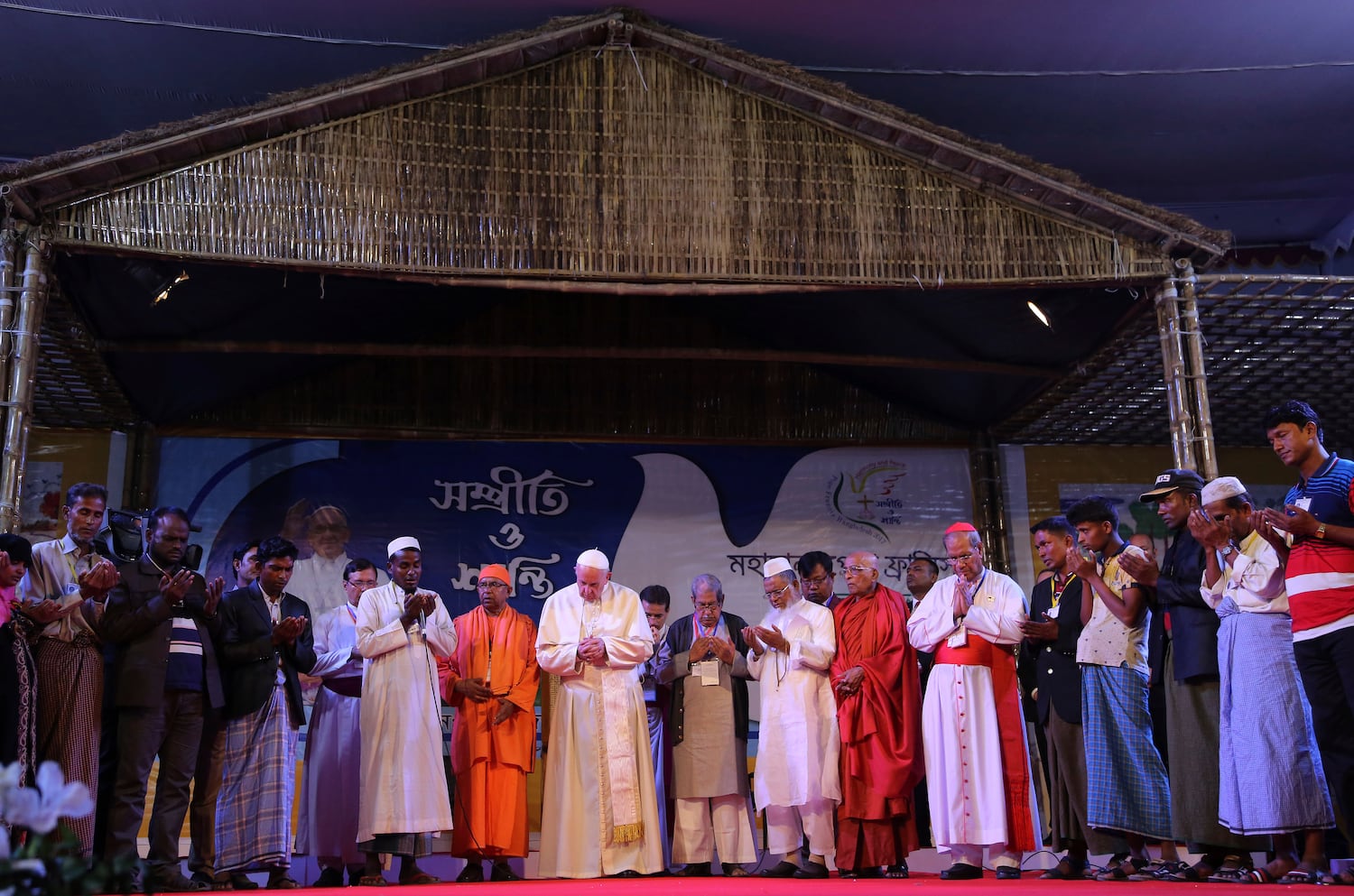






























































Photograph by Nathaniel St. Clair
All across the United States, people are rising up–refusing to be complicit in the slow-motion annihilation of democracy. They march against a regime that strips away public goods, criminalizes dissent, vanishes students, and hollows out the very institutions meant to protect civic life. But these assaults are not new; they are the culmination of what I once called the scorched-earth politics of America’s four fundamentalisms: market worship, ideological conformity, religious zealotry, and educational repression. These fundamentalisms have steadily laid the groundwork for a society governed by violence, cruelty, and unaccountable power–where the market is sacrosanct, history is erased, justice is inverted, and knowledge is policed.
Today, these forces converge in a violent crescendo, a politics of cleansing intent on purging democracy of its ethical substance and moral vocabulary. The government is hollowed out, memory is criminalized, and the law is weaponized to serve the interests of those in power. Racialized others are marked for disappearance, as society sinks into a state of profound erasure. What remains is not merely authoritarian rule, but a theater of terror, where disposability becomes the guiding principle and silence is dangerously mistaken for peace.
Politics has become the extension of crime itself, with governance morphing into organized barbarism. At every level of society, militarization and repression have taken root, directed not only at critics but at entire communities. This is a state-sponsored culture of fear aimed at immigrants, dissenters, and marginalized populations. It manifests in overt abductions of U.S. citizens, targeted because of their race, their dissent, or their opposition to Trump’s domestic and foreign policies. As the fabric of democratic life unravels, the groundwork is laid for the rise of authoritarian rule, where resistance is met with violence, and the very principles of freedom and justice are hollowed out.
This is not governance in the democratic sense; it is the blueprint for authoritarian control disguised as order. The dismantling of public institutions, the suppression of historical memory, the dismantling of legal protections, the assault on higher education, the abduction of students, and the demonization of dissent all signal the emergence of a new mode of state terrorism. This machinery of domination no longer hides its contempt for democracy. It mimics, manipulates, and ultimately discards it. It channels the darkest moments of the past, echoing the brutality of slavery, the violence of the police state, and the horror of the camps. In this rising authoritarian landscape, the state no longer serves the people; it abandons them to a ruthless order in which solidarity is shattered, justice is privatized, and hope is exiled to the margins. This is fascism on steroids.
Resistance is rising, fierce, luminous, and charged with hope. Across the nation, people are pushing back against a regime that robs them of the very essence of life: security, care, sustenance, and dignity. University faculty, students, and more and more administrators are calling for Academic Mutual Defense Compacts to defend themselves against Trump’s attacks From city streets to university campuses, this defiance grows stronger every day. Workers, educators, artists, federal employees, and students, among others, are rising up against the erosion of their rights, the violence inflicted upon their bodies, and the assault on their sense of justice and agency. As fears mount over the collapse of retirement funds, immigration status, police violence, and job security, the crushing weight of scarcity, poverty, and powerlessness takes a toll, both emotionally and physically. With food prices soaring and consumer goods becoming more elusive, the misery deepens. Yet, in the face of this darkness, resistance continues to grow, an act of bold defiance against what Rob Nixon calls the “slow violence” of policies that crush daily life, erase memory, and hollow out the very meaning of agency.
This tide of defiance confronts a politics of cleansing and erasure, spreading like wildfire through the body of democracy: a state stripped to serve the market, memory razed and rewritten, dissent smothered beneath ideological obedience, law twisted into a weapon of vengeance, and racial others cast beyond the bounds of belonging. This is not mere policy, it is a war on the very idea of justice, equality, and freedom, and it must be named for what it is: a multi-front cleansing campaign that demands unrelenting mass resistance. These protests are not symbolic gestures; they are insurgent affirmations that the promise of a radical democracy is not dead, only endangered, and still worth fighting for. Yet, they unfold under an ominous horizon: a politics of cleansing, governmental, ideological, legal, racial, and historical that is intensifying in the U.S. and metastasizing globally, threatening to become the blueprint for a brutal new world order.
Governmental Cleansing and the Death of Social Responsibility
Governmental cleansing begins with a calculated assault on governance as an instrument of the public good. In Trump’s America, the state is no longer envisioned as a guardian of collective well-being. It no longer is seen as offering vital protections like Medicare, Social Security, affordable housing, and public education; instead it is viewed as an obstacle to unfettered capitalism. Neoliberalism provides the ideological scaffolding for this transformation. It redefines freedom as the absence of regulation, empties democracy of its social content, and reduces all human obligations to the cold calculus of profit and efficiency. In this worldview, there are no social problems only personal failures; no public goods, only private investments. This is a politics with closing horizons, one that undermines translating private troubles into larger systemic structural issues.
Milton Friedman’s infamous assertion that “the social responsibility of business is to increase its profits” epitomizes a worldview where social justice is seen as heretical and public welfare is synonymous with socialism. Friedman’s contempt for collective responsibility and his sanctification of profit as moral imperative reveal the ideological foundation of this new horizon of barbarism and cruelty. He writes:
But the doctrine of ‘social responsibility’ taken seriously would extend the scope of the political mechanism to every human activity… That is why, in my book Capitalism and Freedom, I called it a ‘fundamentally subversive doctrine’ in a free society, and have said that in such a society, ‘there is one and only one social responsibility of business to use its resources and engage in activities designed to increase its profits so long as it stays within the rules of the game, which is to say, engages in open and free competition without deception or fraud’… Talk about social responsibility by businessmen is nothing more than pure and unadulterated socialism. Businessmen who talk this way are unwitting puppets of the intellectual forces that have been undermining the basis of a free society these past decades.
Friedman was not alone. Friedrich Hayek warned that even modest forms of state intervention would lead inevitably to tyranny. Margaret Thatcher took it further, famously declaring that “there is no such thing as society,” only individuals and their families. And Ronald Reagan, the affable face of neoliberal rollback, sealed the message when he proclaimed in his 1981 inaugural address, “Government is not the solution to our problem; government is the problem.” With that, the ideological war on the social state was no longer whispered, it became national doctrine.
In Trump’s authoritarian worldview, social responsibility is not a democratic obligation but a fatal weakness–a threat to market supremacy and a check on unchecked power. Any commitment to equality, inclusion, justice, or the common good is cast as a liability to be eliminated. Trump’s policies do not merely echo this neoliberal logic; they manipulate and weaponize it. Federal employees are purged, regulatory agencies dismantled, and essential public services auctioned off to private interests. What emerges is not a government of, by, and for the people, but a privatized state of exception where cruelty is policy, social needs are criminalized, and governance becomes the handmaiden of wealth and power.
This is not merely the rollback of the state; it is a resurgence of market-driven authoritarianism. In this regime, democracy is gutted of its moral core, replaced by an apparatus of disposability built on raw power, profit, and the “airbrushing of the unpalatable and the unfortunate.” In Trump’s America, we are witnessing the rise of a criminalized regime of terror. How else can we explain Issie Lapowsky’s report in Vanity Fair, which reveals that Trump is “openly flirting with the prospect of deporting immigrants and green card holders deemed criminals to the cruel and dehumanizing mega-prison in El Salvador.” Noah Bullock, executive director of Cristosal, aptly calls the CECOT Prison a “judicial black hole.” David Levi Strauss adds some detail to Bullock’s comment noting that “CECOT can hold up to 40,000 prisoners, when they’re stacked up like cordwood. Those held there have no visitation rights, no recreation time, no exposure to the outside, no reading material, no bedding, and they will never leave the facility.”
Memory Cleansing and the Plague of historical amnesia
Across the country memory laws are emerging designed to ban critical renditions of history, narratives that challenge dominant renderings that whitewash, censor, and exclude the history of the oppressed, slavery, cruelty, war, and regressive notions of exceptionalism that give a voice to those written out of history. Historical amnesia has become a central pedagogical tool of Trump’s fascist politics and state terrorism. Drawing from the past has become dangerous in Trump’s America because history allows students and the larger public to draw parallels, recognize patterns, and learn how not to repeat the worse acts of oppression in history. Memory matters because it gives people the language not to overlook or dissolve as Timothy Snyder notes “the historical consequences of slavery, lynchings … voter suppression,” and other acts of injustice. Trump and his MAGA black shirts are doing more that producing what Hazel Carby calls “a national crusade to control historical knowledge,” they are turning history into a racist weapon. History cleansing is part of a broader backlash against inclusive histories; it is a central element of authoritarian regimes that make people disappear by eliminating their histories, memories, institutions of learning, and in the end their dignity, agency, and collective identities.
Historical cleansing, as Maximillian Alvarez aptly describes it, is a “twenty-first-century political warfare on long-term historical consciousness.” This war is unfolding in the United States, where books are banned, libraries are purged, and far-right politicians demand that public and higher education institutions sanitize the curriculum, erasing “the difficult parts of our past.” In this form of ideological cleansing, the brutality of racism is obscured. Facts like the brutal truth that “between 1877 and 1950, more than 4,000 Black men, women, and children were lynched in cities and towns across the country,” and that the lynching of Black men and boys continues, though no longer as public spectacles, are systematically erased. This racial terror has deep roots in history, yet it is now being deliberately erased from the historical record. In its place, a new spectacle has emerged—one defined by mass deportations and the rise of the prison as a central instrument of fear, lawlessness, and punishment. David Levi Strauss aptly characterizes this intensified focus on the punishing state as “carceral porn,” a powerful reflection of our times. His words are worth quoting at length:
Carceral porn reached a new level of depravity on March 26, when Homeland Security Secretary Kristi Noem (aka ICE Barbie) channeled Kafka in the penal colony and Lynndie England at Abu Ghraib and shook her ass in front of rows of caged, bare-breasted tattooed prisoners in El Salvador’s CECOT prison. She was wearing a blue cap with a badge and an 18-karat gold Rolex Cosmograph Daytona watch worth about $50,000. Noem has made a cottage industry out of parading around in swat or combat gear in the midst of disasters, with a make-up person and hairstylist in tow. Of the above image, she said, ‘People need to see that image.’
The spectacularizing of politics cannot be removed from the whitewashing history, another potent form of depoliticization–n erasure in which the censorship of truth not only obliterates the struggles of the marginalized and oppressed but also dismantles critical thinking, the rule of law, and the very notion of justice. Under Trump, this deliberate politics of organized forgetting extends into the mechanisms of state violence, where those erased from the historical narrative are abandoned to detention centers, prisons, and the brutalities of a police state.
Memory cleansing is not merely a distortion of history; it transforms politics into a lie, legitimizing the exclusionary acts that silence people’s voices and erase their histories, desires, and identities. Like all authoritarian regimes, the Trump administration seeks to turn the public into historical amnesiacs, obscuring the violence, corruption, and exploitation woven into the fabric of gangster capitalism and authoritarian power. It denies the lessons of the past that show us that what happened before need not happen again. Being attentive to history is not just an intellectual exercise; it is a moral imperative, directed at making people understand that learning from history teaches us to recognize how future crimes can be prevented by remembering the past in all its painful truth.
Ideological Cleansing and the Rise of Indoctrination Factories
Fascism endures not merely through brute force, but through the systematic erasure of memory, critical knowledge, and informed judgment. It intertwines historical amnesia with ideological cleansing, preventing the public from accessing past catastrophes so that, as Maria Pia Lara powerfully observes, they are unable to “exercise judgments whose results can give rise to disconcerting truths.” This process of historical cleansing inevitably leads to moral cleansing, which enacts the stage upon which other violent dramas can be produced. Fascism flourishes in a world where lies replace truth, spectacles drown out critical thought, and fear serves to justify and legitimize the apparatuses of indoctrination.
Across the United States, universities and public institutions are increasingly transformed into ideological battlegrounds. Books that address racism, gender violence, and settler colonialism are being banned. Professors who challenge the Trump regime, tackle urgent social issues, or advocate for Palestinian freedom face harassment and, in many cases, dismissal. As Zane McNeill reports in Truthout, international students, too, are now increasingly vulnerable, subjected to government harassment simply for engaging in political discourse or dissent– targeted because they fail to meet the White House’s ideological litmus test for what constitutes a “patriotic” resident. Over 600 international students across more than a hundred institutions have had their visas revoked, with social media monitored by U.S. Citizenship and Immigration Services for supposed “antisemitic content.” This pattern of ideological repression extends beyond the classroom, where entire academic departments, especially those focused on Middle Eastern Studies, are systematically dismantled, branded as havens of “ideological capture,” and accused of fueling “antisemitic harassment” through targeted legislation. Faculty members are being stripped of their jobs, their tenure, and their dignity, subjected to a surveillance state that calls to mind the darkest chapters of history echoing the purges of Hitler’s Germany and Augusto Pinochet’s Chile.
Ron DeSantis, the self-proclaimed anti-woke governor of Florida, embodies this crackdown with frightening precision. In a brazen act of ideological surveillance, pedagogical repression, and an intricately planned assault against all levels of critical education, DeSantis issued an executive order demanding that Florida’s colleges and universities submit detailed records of faculty research grants over the last six years, including lists of papers published by faculty. This sends a clear, chilling message to those faculty and others researching topics related to critical race theory, which Donald Trump has vilified as “a hateful Marxist doctrine that paints America as a wicked nation…rewrites American history…and teaches people to be ashamed of themselves and their country.”
Columbia University’s shameful acquiescence to the Trump administration’s demands for ideological purification starkly underscores the failure of American higher education to defend justice, truth, and the rights of students. In her searing critique, Fatima Bhutto captures the spirit of Columbia University capitulation to authoritarianism. She writes:
Trying to prove that they are a university the government can rely on, Columbia has …agreed to ban certain masks, empowering new campus security personnel to arrest students, and appointed someone to oversee the Middle Eastern, South Asian, and African studies department and the Palestine studies center of study. “Vichy on the Hudson,” Professor Rashid Khalidi called them recently, referring to France’s Vichy regime that collaborated with Nazi Germany.
Ideological cleansing is not limited to public and higher education. Trump’s recent executive order targeting the Smithsonian for promoting “anti-American ideology” echoes the darkest chapters of history. In July 1937, Hitler organized the notorious Degenerate Art Exhibition to condemn any cultural expression that defied state doctrine. The intent then, as now, was to impose a singular, monolithic national narrative and criminalize complexity and artistic dissent. Fascism thrives on political theater that celebrates cruelty, militarism, manufactured ignorance, and a multitude of fundamentalisms, whether rooted in neoliberalism, religious tyranny, white supremacy, ultra-nationalism, or settler-colonialism. As Donalyn White and Anthony Ballas rightly argue, ideological cleansing and historical amnesia are central to today’s capitulation to fascism. The politics of historical oblivion embrace not only ideas but also bodies, leading directly to concentration camps, prisons, and modern-day gulags.
The White House’s deliberate erasure of history reaches its nadir with the removal of anti-slavery icon Harriet Tubman‘s image and biography from the U.S. Park Service website, an ideological lynching that seeks to wipe away the legacy of slavery while diminishing the profound contributions of African-Americans to the nation’s story. This isn’t an oversight; it’s a calculated assault on memory, a form of aesthetic assassination where icons like Tubman are disposed in to dustbin of history, alongside figures like Jackie Robinson, former Secretary of State Colin Powell, and the Tuskegee Airmen. In this act, the far-right not only rewrites history but attempts to re-imagine the very identity of America itself, one that can no longer acknowledge the brutal truths of its past or the resistance, courage, and brilliance of its Black citizens.
This is the dangerous terrain upon which we now tread. To allow this cleansing to continue is to abandon the very essence of democratic life and the moral imperatives that should guide us. We must recognize that the erasure of history, both in the mind and in the body, is not a neutral act, it is an invitation to totalitarianism.
Legal Cleansing and the End of the Rule of Law
Legal cleansing refers to the systematic dismantling of the law as a democratic safeguard and its conversion into a tool of authoritarian rule. This pattern of legal cleansing replaces the rule of law with the law of rule. It is not about justice, but about domination, turning the law into an instrument of exclusion, vengeance, and authoritarian control. Under Trump, the law is no longer about protecting rights, it’s about enforcing loyalty. Federal employees are fired en masse to make room for partisan loyalists. Trump has threatened elite law firms, many of whom are capitulating to his demands–smeared judges who rule against him, and promised to pardon those convicted of political violence. He’s vowed to revoke Social Security numbers from immigrants and carry out mass deportations without due process, all done beyond the boundaries of the law. The Trump-aligned Congress is passing laws to restrict the independence of the courts and the power of judges. The Trump administration is relentless in its efforts to purge experienced, nonpartisan civil servants and replace them with political loyalists who will enforce his agenda without question. In the process, legal protections are dismantled, regulatory agencies are stripped of their power, and dissent is treated as a crime. Immigrants and students have been abducted off the street, thrown into unmarked vehicles, and disappeared into remote ICE detention centers, for little more than advocating pro-Palestinian views. No charges. No trial. No justice.
The sheer horror of this form of organized barbarism was starkly revealed when El Salvador’s ruthless dictator, Nayib Bukele, met with Trump and callously refused to return Abrego Garcia to the United States, dismissing him as a “terrorist” he would not “smuggle” into the country. Garcia is not a terrorist, and the government itself admitted that he was mistakenly deported. Yet it gets worse. As Hafiz Rashid reports in The New Republic, despite the Supreme Court’s order for Garcia’s return to the U.S., “the Trump administration has stalled and refused, hiding behind semantics and technicalities. And with the backing of a dictator like Bukele, the White House seems content to let an innocent immigrant languish in a gulag,” showing a complete disregard for justice and due process.
State terrorism extends beyond physical violence; it flourishes through the embrace of irrationality, with the state justifying acts of terror under the guise of national security. A striking example is the state-sponsored abduction of Mahmoud Khalil, a Columbia University graduate student involved in anti-Israel protests. Secretary of State Marco Rubio, in a memo, stated that while Khalil’s beliefs may be lawful, he invoked a provision of the Immigration and Nationality Act of 1952 granting the Secretary of State the authority to “personally determine” whether he should remain in the country based on his “expected beliefs.” This alarming statement, with its Nuremberg-like laws and Kafkaesque nightmares, exposes the essence of authoritarian regimes, where punishment extends beyond actions to preemptively target individuals for their very thoughts. It echoes the darkest chapters of totalitarian history, where freedom is not just stifled but eradicated at its roots. This is no mere legal overreach; it is a blatant assault on due process and liberty, a grotesque perversion of justice designed to strip away the most fundamental human rights.
No one is immune from the looming terror unleashed by the Trump administration. When White House press secretary Karoline Leavitt casually claims that Trump was not joking about deporting U.S. citizens to the notorious El Salvador prison, this frightening threat demands our full attention. It is not just rhetoric; it is a stark warning of the grave dangers this administration poses to our basic freedoms, and a harrowing glimpse into the shape fascism is taking in America. These threats are matched by what
This is an American style fascism without apology, unhinged in its violation of rights, justice, and essential democratic freedoms. Such rhetoric transforms dissent into a criminal act before it even occurs, exemplifying the essence of legal and ideological cleansing that underpins fascist politics. It reveals the deeply irrational nature of authoritarian rule, where the state not only controls actions but seeks to control the very minds of its citizens, justifying state violence and terrorism against those deemed undesirable, whether for their beliefs, speech, or associations. This escalation into ideological terror is the hallmark of fascism, which thrives on the erasure of reason, the criminalization of free thought, and the normalization of state-sanctioned violence.
It is worth emphasizing, this logic is already at work on the ground. Students demanding justice for Palestine face arrest, suspension, deportation. Protest is branded as terrorism. Solidarity is met with surveillance. And all of it unfolds under the shadow of a government preparing to use the full weight of the state, military included, to crush dissent. For the Trump administration to openly declare the power to abduct and imprison individuals not for what they have said or done, but for what they might think, secretly believe, or may come to believe, is a mind-numbing manifestation of Orwellian terror. This, without question, stands as a glaring example of state-sanctioned brutality, nothing less than state terrorism.
Trump’s purge of the military, targeting high-ranking commanders and inspector generals is not mere reshuffling, but a calculated attempt to replace constitutional loyalty with personal devotion. It echoes the most dangerous precedents in modern history: Hitler’s co-optation of the Wehrmacht, Pinochet’s military coup in Chile, and the deployment of armed forces under Videla in Argentina. This is the scaffolding of militarized authoritarianism, where the armed forces no longer protect the republic but enforce the will of a would-be strongman. If Trump turns the military against dissidents, demonstrators, or student protesters, as he has repeatedly threatened, the expectation is chillingly clear: they will obey.
In this vision, the law is no longer tethered to justice; it becomes a tool for vengeance, exclusion, and raw domination. The silence and craven accommodation to fascism that follows is not peace, it is complicity. And what looms on the horizon is not order, but the slow, calculated unfolding of a coup already in motion.
Racial Cleansing and the Scourge of White Supremacy
State violence always has a target, and it is painfully evident that these targets are racialized. From the southern border to the voting booth, from campus protests to inner-city neighborhoods, racial cleansing is no longer a hidden strategy, it is a governing principle. Hundreds of immigrants are detained and deported without due process, sometimes sent to a mega-prisons in El Salvador or held indefinitely in ICE facilities where human rights are an afterthought. Under Nayib Bukele reign of terror, the concept of governing through crime is visible in the fact that “ 84,000 people have been arrested and jailed, usually without a trial, hearing, or any other due process of law.” Black and brown communities are overpoliced, under protected, and routinely brutalized, caught in the crosshairs of a carceral state that sees them not as citizens but as threats. Police violence has become a normalized form of racial discipline and terrorism, while white supremacist militias are emboldened and often protected.
Stephen Miller stands as one of the most influential architects behind Trump’s racist policies. Infamous for championing the cruel separation of thousands of children from their parents during Trump’s first administration, Miller has long aligned himself with far-right media and figures. His outspoken opposition to DACA and calls to end Temporary Protected Status for predominantly non-white populations further underscore his deeply entrenched racism. This bigotry is so well-known that even his own family members have publicly denounced him.
Racial cleansing manifests through a cascade of reactionary policies. The right to vote is under siege, restricted through gerrymandering, voter roll purges, intimidation at polling stations, and laws designed to disenfranchise communities of color. DEI programs are being dismantled under the pretense of purging racist policies, when in truth they are targeted precisely because they seek to redress systemic racism. In schools and universities, anti-racist pedagogy is vilified, books are censored; books by authors of color are banned, and any effort to center marginalized voices is cast as indoctrination.
Muslim communities are relentlessly surveilled, their lives scrutinized under policies that disproportionately target them. Latinx neighborhoods are raided. Indigenous sovereignty is ignored. And students who protest these injustices, especially those who defend Palestinian rights are labeled as extremists and enemies of the state.
Conclusion
In an age when fascism no longer hides in the shadows, we must learn to see clearly the architecture of cleansing now hollowing out and already weakened democracy–socially, ideologically, legally, and racially. This is not merely about isolated policies, but the totality of a system, a mode of neoliberal fascism, that feeds on amnesia, fear, and disposability. To resist, the American public needs to become historically conscious, attuned to how power operates both in the bloodstream of everyday life and in plain sight.
As the late sociologist, Pierre Bourdieu reminds us, gangster capitalism or its updated version of neoliberal fascism thrives not only through repression but through the death of imagination, the dismantling of critical thought, informed judgment, and the very institutions that nurture them. It is essential to challenge the formation of oppressive identities, agency, and subjectivity, while equally vital is the cultivation of cultural and educational forces that can undo them. Just as we must confront the economic, financial, and institutional structures of neoliberal fascism, both nationally and globally, it is equally crucial to recognize that domination operates on an intellectual and pedagogical level, shaping minds and ideas as much as markets and policies. What’s needed now is not just understanding and outrage, but organized defiance. Education must be reclaimed as a vehicle of liberation, capable of producing critical, informed, and courageous citizens. This is not the time for silence or spectatorship. It is a time to act in defense of freedom, justice, equality, and the fragile dream of a democracy not yet fully realized.
The post The Politics of Cleansing appeared first on CounterPunch.org.
This content originally appeared on CounterPunch.org and was authored by Henry Giroux.
This post was originally published on Radio Free.










